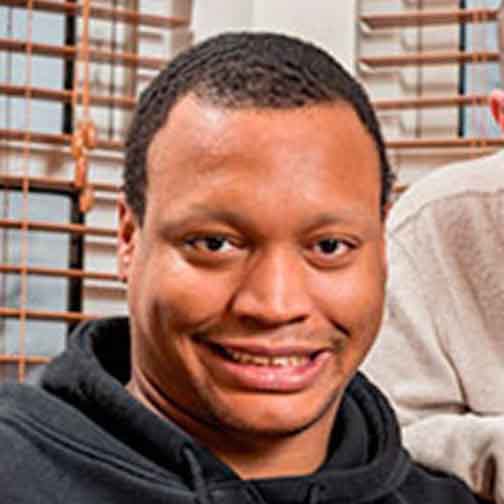
Brandon
Brandon came to RHD from a group home, where he struggled. He would sleep at night not in his bed, but curled up by the door so that no one could get into his room. He took up skateboarding (and now boasts a collection of more than 60 skateboards) as a way of escaping; he just wanted to get out.
“Brandon would write me letters,” said Sandy Paul, Brandon’s case manager at the Missouri Developmental Disabilities Resource Board. “They were his hopes and dreams, his plans for the future. And they all started the same way: I want a house. I want to live on my own.
“When he moved into the RHD home, it was a phenomenal thing for Brandon. Phenomenal. Brandon is so much more calm, so much more social. His communication skills have greatly improved, and it’s because he has the opportunity to voice his opinion and to advocate for what he wants. The experience has been wonderful for Brandon.”
In RHD’s companion model, the people RHD supports reside in their own home with a live-in caregiver chosen by the client and their family. The companion assists with daily activities as necessary, and takes part in social and recreational activities. The consumer gains the stability and independence of living in one’s own home, and ideally builds a relationship that comes from working together with a companion to achieve a mutually satisfying home life.
Brandon’s life is full. He attends the day program at RHD’s Blank Canvas Studios, where he paints and draws and still writes letters in a unique kind of calligraphy. But now they’re more about how happy he is, how great his life is. Now they’re full of hope.
“Brandon is one of the most loving people I’ve ever met,” Paul said. “And he’s growing into such a great, wonderful man.


